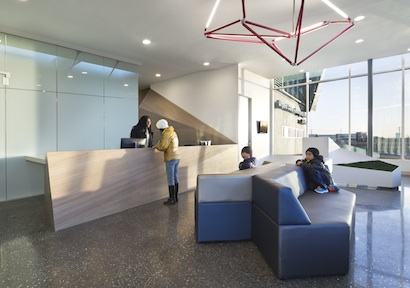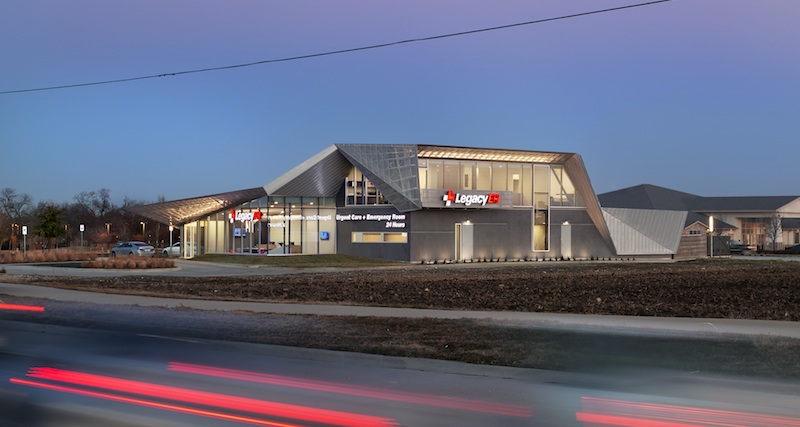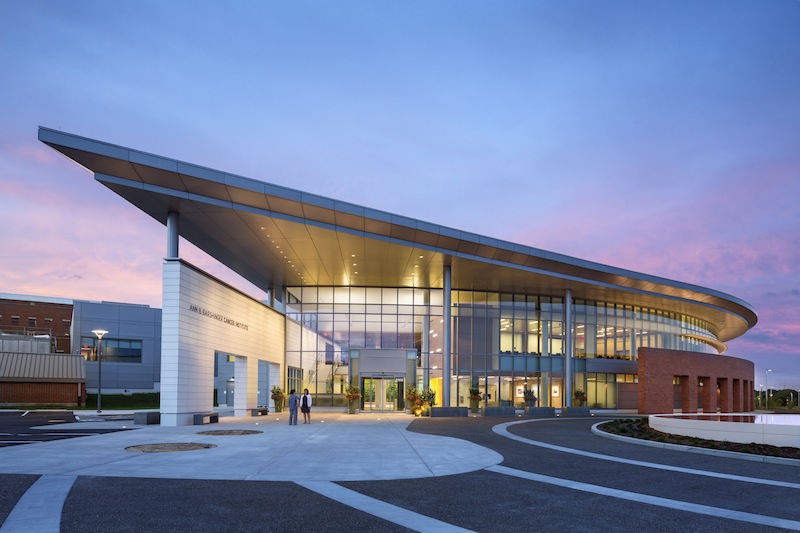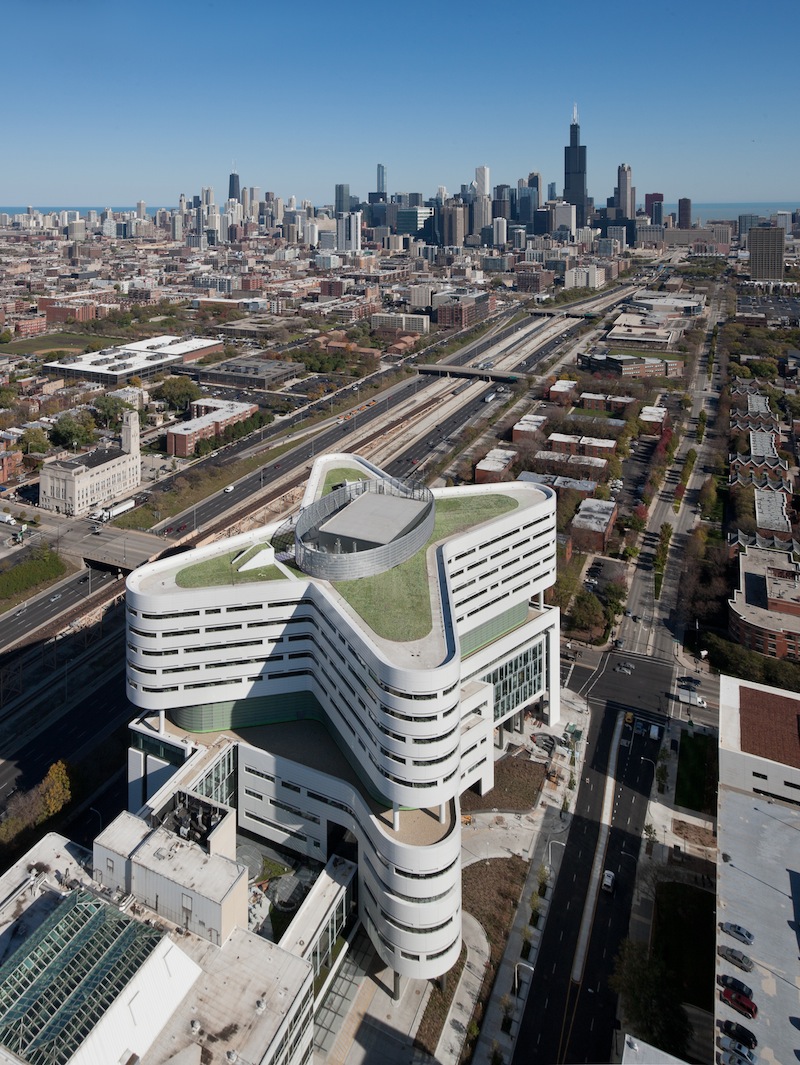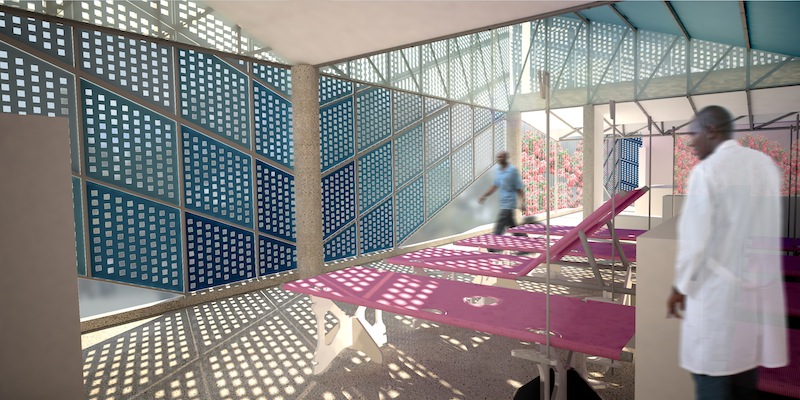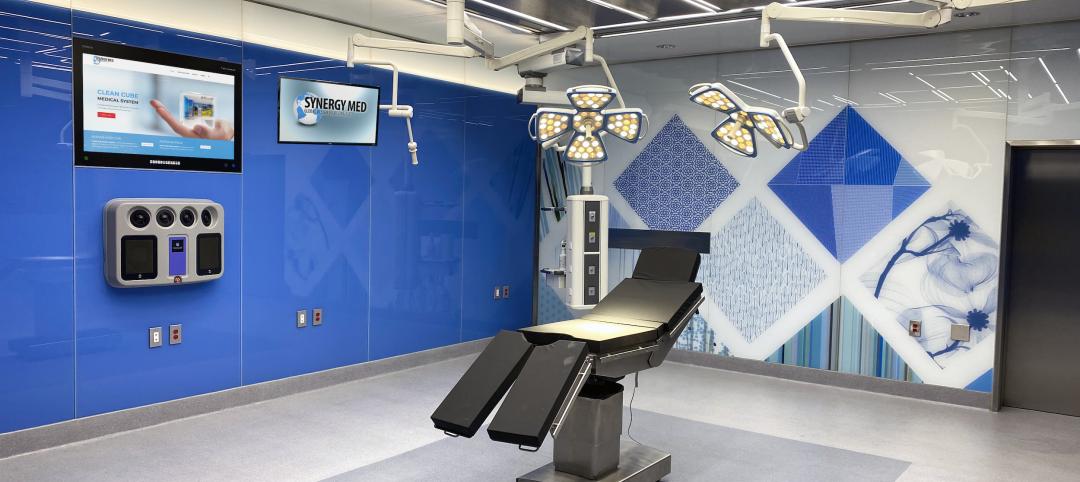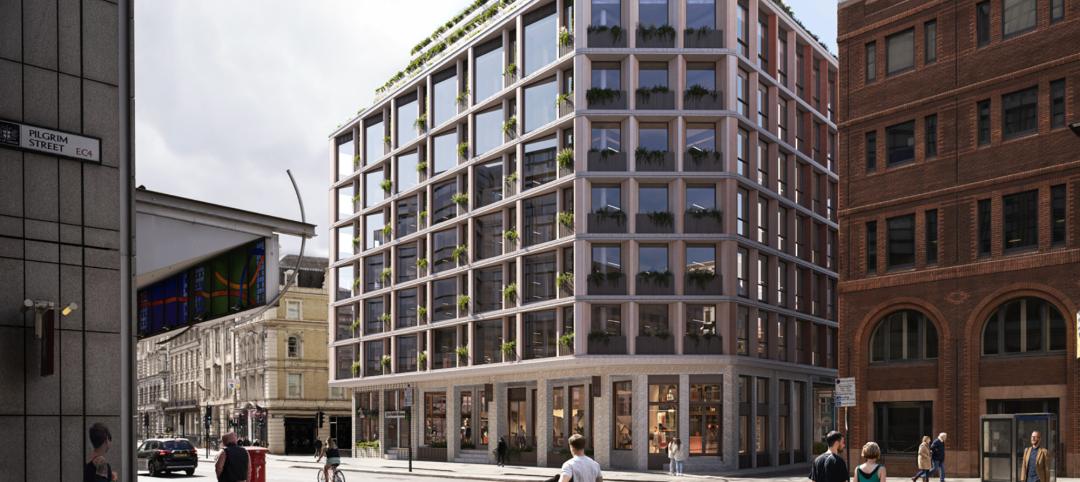The American Institute of Architects Academy of Architecture for Health has selected the recipients of the AIA National Healthcare Design Awards program. The AIA Healthcare Awards program showcases the best of healthcare building design and healthcare design-oriented research.
Projects exhibit conceptual strengths that solve aesthetic, civic, urban, and social concerns as well as the requisite functional and sustainability concerns of a hospital.
Recipients were selected in four different categories:
Category A: Built, Less than $25 million in construction cost
Category B: Built, More than $25 million in construction cost
Category C: Unbuilt, Must be commissioned for compensation by a client with the authority and intention to build
Category D: Innovations in Planning and Design Research, Built and Unbuilt
Jurors for the 2014 National Healthcare Design Awards include: Eric Goodfriend, AIA (Chair), Mahlum; Roger Call, AIA, Herman Miller for Healthcare; Jim Lennon, Lennon Associates; James C. Lord II, AIA, KGA Architecture; Mark Patterson, AIA, SmithGroupJJR; Mark Tortorich, FAIA, Stanford University and Shane Williams, AIA, Array Architects.
Category A
Legacy ER – Allen; Allen, Texas
5G Studio Collaborative
Legacy ER operates a hybrid program offering urgent and 24/7 state-licensed emergency care services within a freestanding building. Conceptualized as a potent reflection of the organization’s identity, the architecture captured the duality of the emergency medical professionals' character, projecting outwardly the knowledge, skill, precision, and decisiveness necessary for the competent practice of emergency medicine and expressing inwardly the gentle, empathic, and humanistic qualities of the persons beneath the robe, realized simply through montaging sharply folded exterior robe of zinc and softly sculpted interior plastered planes. Points of admission of natural daylight and views create apertures that elucidate intersecting tectonic moments.
Lightwell: Greater Boston Orthodontics; Waltham, Massachusetts
Merge Architects
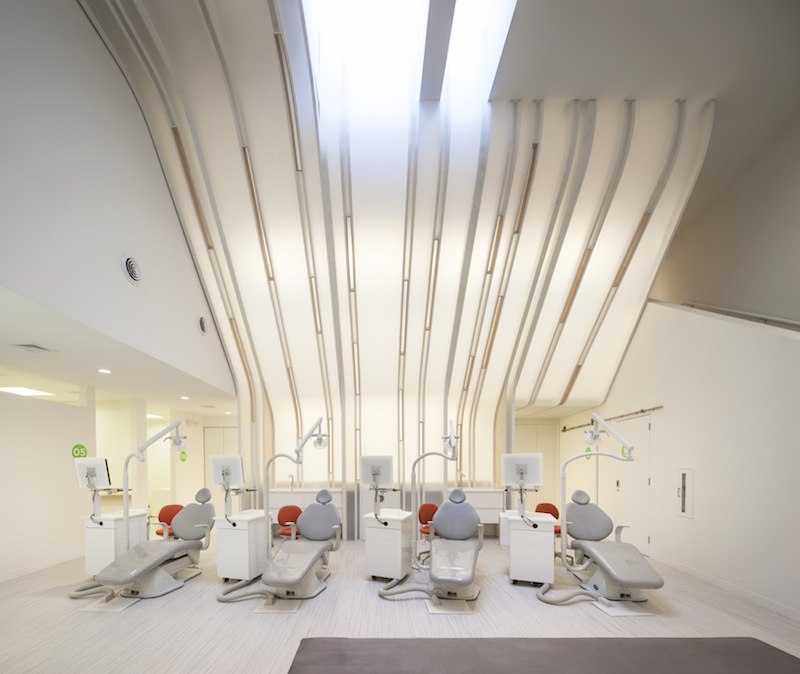
Photo: John Horner Photography
A hundred-year-old storefront and warehouse on Main Street in Waltham was gutted, creating an open plan orthodontic clinic – including reception and treatment areas flanked by semi-private offices, toothbrushing stations, exam rooms, and a staff coffee area. The double-height treatment space is framed by an 18-foot-tall backlit translucent wall curving down in section to frame and light the open treatment area. CNC-cut plywood ribs skinned with thin polycarbonate panels funnel light from skylights above. The front waiting space is defined by a custom seating area and digital media bar, wool felt applied to walls, a custom light pendant, and bright custom wall graphics to provide wayfinding.
Category B
Lancaster General Health Ann B. Barshinger Cancer Institute; Lancaster, Pennsylvania
Ballinger
The new 100,000 square foot Ann B. Barshinger Cancer Institute is developed around a progressive model for cancer care and employs an interdisciplinary and patient-centric approach. Focused on regeneration and reconnection to living systems, the building’s radial form derives from an existing elevated, curvilinear arrival / parking court which has become a central courtyard healing garden. The expanded oncology program is arrayed around the garden on two levels. Glazed skins and multiple points of access provide a continuous dialogue between interior and exterior, creating a visually open environment that reduces anxiety and stress for patients and their families.
Mount Sinai Hess Center for Science and Medicine; New York City
Skidmore, Owings & Merrill LLP
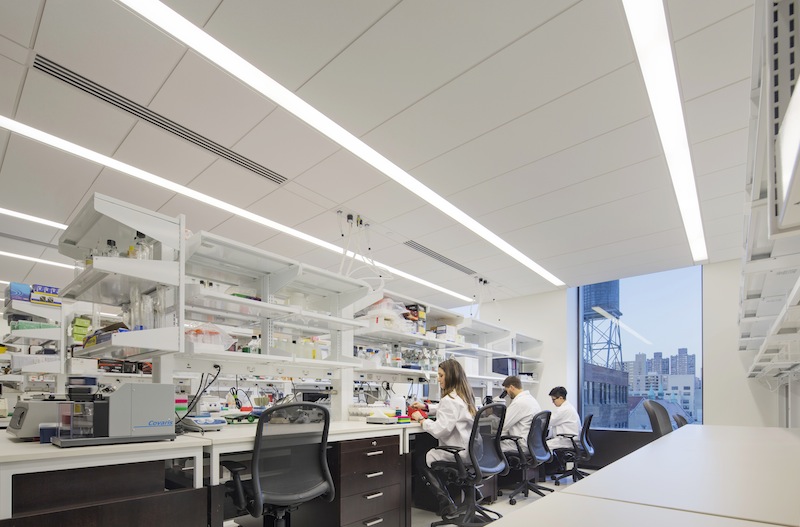
Photo © Eduard Huebrer / Archphoto
Envisioned as a place of discovery and healing, the striking Mount Sinai Hess Center for Science and Medicine is shaped by its translational research mission and urban context. Located in Upper Manhattan, the center places researchers, clinicians, educators, and patients in an integrated environment with state-of-the-art technology. The 420,000 square foot facility is specifically designed to foster multi-disciplinary interaction through a network of formal and informal settings. The primary design objective was to craft a flexible environment that would be inspiring and supportive for employees while gracious and dignified for patients and their families. Inside, natural light and a warm, simple material palette puts cancer patients at ease.
Rush University Medical Center New Hospital Tower; Chicago
Perkins+Will
As part of Rush University Medical Center’s 10-year, $1 billion Campus Transformation Project, Perkins+Will planned and designed a new 840,000 square foot state-of-the-art hospital building. Crowned by a butterfly-shaped bed tower designed to minimize steps between staff and patients, the new hospital is comprised of 304 acute and critical care beds, 72 neonatal intensive care beds, and 10 labor and delivery beds. The emergency department contains one of the country’s few bioterrorism preparedness facilities, and is designed to handle large-scale health emergencies. The hospital is one of the largest in the world to be certified LEED Gold.
Category C
Children’s Hospital of Richmond Pavilion (CHoRP); Richmond, Virginia
HKS, Inc.
At the gateway to the medical campus, the Children’s Hospital of Richmond Pavilion consolidates existing pediatric clinics into a compact vertical urban pavilion. The facility is dedicated to providing comprehensive healthcare for children and adolescents and contains a surgery level, three levels of pediatric clinics, a faculty/research floor, and seven levels of parking. Adjacent to some of the city’s most important civic structures, the design establishes a signature identity that embodies VCU’s objective of becoming the region’s premier pediatric academic medical institution. Drawing inspiration from natural elements that are unique to the City of Richmond, the design is intrinsically tied to its location. Themes of sky, water, and forest bring nature to the heart of this urban campus.
Category D
Cincinnati Children's Family Pet Center; Cincinnati, Ohio
GBBN Architects
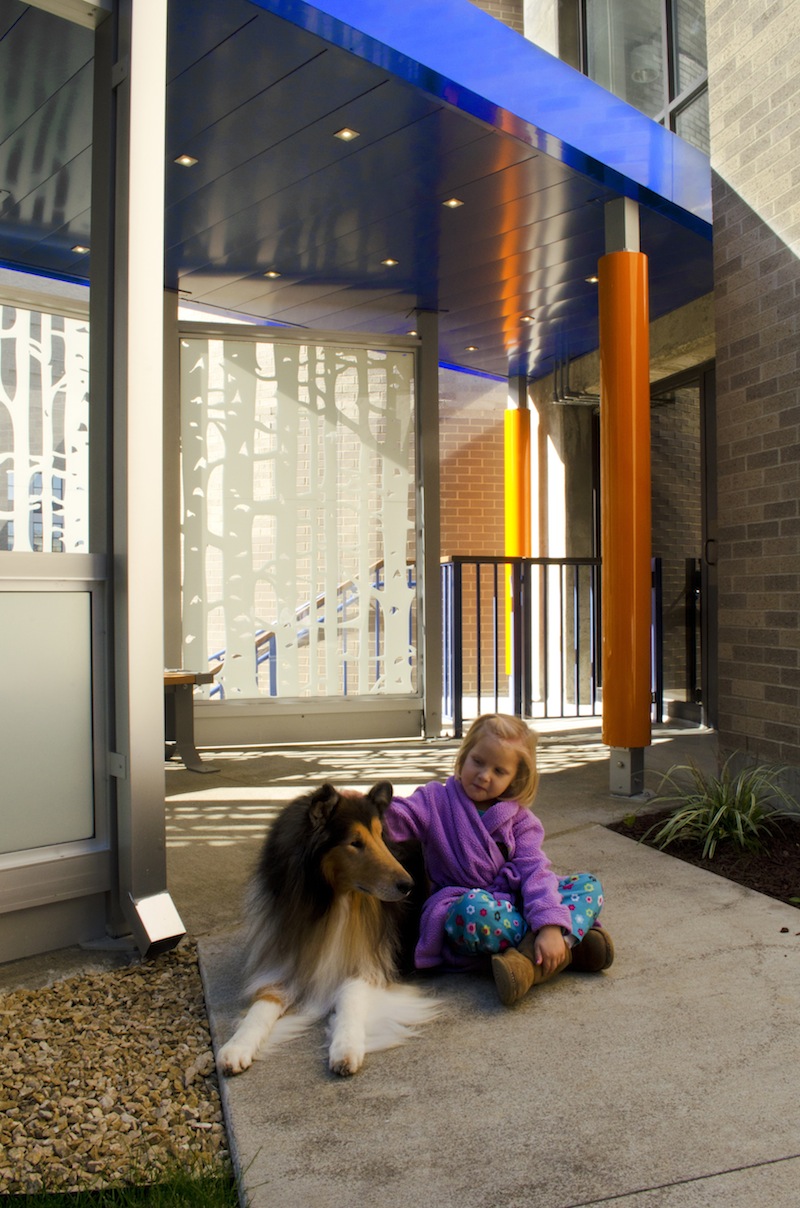
Courtesy Cincinnati Children's Hospital
The Family Pet Center expands the hospital’s pet therapy program with a 250-sf pavilion and lawn areas that accommodate patients whether on foot, in a wheelchair or on a stretcher. In this 8’ by 10’ enclosure, kids reunite with their own pets. Positive effects begin with anticipation days in advance, the visit itself, and the lingering effects of memories or storytelling afterwards. Based on research on the healing benefits of Animal Assisted Therapy (AAT), this pavilion addresses the medical needs of the children and the physical dynamics of pets. Especially for cancer patients, who deal with high levels of stress, pain, and long hospital stays, AAT contributes to recovery by improving the quality of life for patients.
GHESKIO Cholera Treatment Center (CTC); Port-au-Prince, Haiti
MASS Design Group
The first permanent facility in Port-au-Prince, the CTC provides an aggressive model for cholera treatment, while creating a healing space that promotes a dignified patient experience. Both the CTC’s layout and placement of amenities optimize staff and patient flow. The design tackles unique site conditions, including the lack of reliable piped water and lack of sewer system connection, by providing off-the-grid services. The roof collects rainwater, which is stored in cisterns, chlorinated, and then used for showers and sinks. The facility also decontaminates waste on-site and is designed to achieve 99.99% removal and inactivation of Cholera vibrio and other pathogenic organisms. The façade blends the use of the most advanced technology, using parametric modeling to optimize apertures for daylighting, ventilation, and privacy, with deploying analog techniques for local fabrication. The CTC will not only establish new standards for cholera treatment, but also new standards for quality construction in Haiti.
The video provides more information.
Building Better Builders from MASS Design Group on Vimeo.
Related Stories
Healthcare Facilities | Jul 19, 2023
World’s first prefab operating room with fully automated disinfection technology opens in New York
The first prefabricated operating room in the world with fully automated disinfection technology opened recently at the University of Rochester Medicine Orthopedics Surgery Center in Henrietta, N.Y. The facility, developed in a former Sears store, features a system designed by Synergy Med, called Clean Cube, that had never been applied to an operating space before. The components of the Clean Cube operating room were custom premanufactured and then shipped to the site to be assembled.
Performing Arts Centers | Jul 18, 2023
Perelman Performing Arts Center will soon open at Ground Zero
In September, New York City will open a new performing arts center in Lower Manhattan, two decades after the master plan for Ground Zero called for a cultural component there. At a cost of $500 million, including $130 million donated by former mayor Michael R. Bloomberg, the Perelman Performing Arts Center (dubbed PAC NYC) is a 138-foot-tall cube-shaped building that glows at night.
Codes and Standards | Jul 17, 2023
Outdated federal rainfall analysis impacting infrastructure projects, flood insurance
Severe rainstorms, sometimes described as “atmospheric rivers” or “torrential thunderstorms,” are making the concept of a “1-in-100-year flood event” obsolete, according to a report from First Street Foundation, an organization focused on weather risk research.
Multifamily Housing | Jul 13, 2023
Walkable neighborhoods encourage stronger sense of community
Adults who live in walkable neighborhoods are more likely to interact with their neighbors and have a stronger sense of community than people who live in car-dependent communities, according to a report by the Herbert Wertheim School of Public Health and Human Longevity Science at University of California San Diego.
Sustainability | Jul 13, 2023
Deep green retrofits: Updating old buildings to new sustainability standards
HOK’s David Weatherhead and Atenor’s Eoin Conroy discuss the challenges and opportunities of refurbishing old buildings to meet modern-day sustainability standards.
Contractors | Jul 13, 2023
Construction input prices remain unchanged in June, inflation slowing
Construction input prices remained unchanged in June compared to the previous month, according to an Associated Builders and Contractors analysis of U.S. Bureau of Labor Statistics Producer Price Index data released today. Nonresidential construction input prices were also unchanged for the month.
Government Buildings | Jul 13, 2023
The recently opened U.S. Embassy in Ankara reflects U.S. values while honoring Turkish architecture
The U.S. Department of State’s Bureau of Overseas Buildings Operations (OBO) has recently opened the U.S. Embassy in Ankara, Turkey. The design by Ennead Architects aims to balance transparency and openness with security, according to a press statement. The design also seeks both to honor Turkey’s architectural traditions and to meet OBO’s goals of sustainability, resiliency, and stewardship.
Affordable Housing | Jul 12, 2023
Navigating homelessness with modular building solutions
San Francisco-based architect Chuck Bloszies, FAIA, SE, LEED AP, discusses his firm's designs for Navigation Centers, temporary housing for the homeless in northern California.
Sponsored | Fire and Life Safety | Jul 12, 2023
Fire safety considerations for cantilevered buildings [AIA course]
Bold cantilevered designs are prevalent today, as developers and architects strive to maximize space, views, and natural light in buildings. Cantilevered structures, however, present a host of challenges for building teams, according to José R. Rivera, PE, Associate Principal and Director of Plumbing and Fire Protection with Lilker.
Building Owners | Jul 12, 2023
Building movement: When is it a problem?
As buildings age, their structural conditions can deteriorate, causing damage and safety concerns. In order to mitigate this, it’s important to engage in the regular inspection and condition assessment of buildings for diagnosis.


